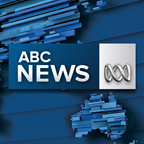
When the 180 Australian athletes returned home from competing at the Montreal Olympics in 1976, the sporting-mad nation could not believe they had not brought a single gold medal home with them.
Despite competing in 20 sports, the team brought home just one silver and four bronze medals.
It was in the face of the subsequent public backlash that the government of the day set up the Australian Institute of Sport (AIS) in a bid to elevate the nation as a leader in sport.
As the centre prepares to mark its 40th anniversary tomorrow, there are concerns that early vision for the institute has been lost and that the AIS has become little more than a "consultancy".
The boss of the AIS disputes that critique, arguing the next phase of the institute is all about looking to the future and anticipating the complex needs of more and more athletes, while not duplicating the work being done by state and territory sporting bodies.
'There was a national outcry'

Former world champion marathon runner Robert de Castella said the 1976 games were a turning point for Australia.
"It was the first time ever that Australia didn't come back with a gold medal and there was a national outcry," De Castella said.
A series of sport reviews called for a dedicated high-performance centre that was insulated and separated from national sporting organisations.
De Castella said a key aim of such a facility was to "create a synergy of culture between sports".

"And that's what the institute was," he said.
Then prime minister Malcolm Fraser opened the sprawling and state-of-the-art Australian Institute of Sport in the Canberra suburb of Bruce on January 26, 1981.
"This complex, this National Indoor Sports Centre and the National Institute of Sport are a clear indication of our determination to reverse past trends."
'The AIS has a massive impact on my life'

Nova Peris had her first taste of the AIS early on in life, where she won a medal in long jump at the Australian Junior Championships in the under 12s.
Spending time at the AIS "was an inspiration", she said.
"I aspired to hopefully being a part of the Institute of Sport one day."
Peris' sporting career would go on to intersect with the AIS for some years, as she progressed to the Olympic hockey team and, in 1996, became the first Aboriginal Australian to win an Olympic gold medal.
Her switch to running, and ultimately to winning Commonwealth gold medals, also ran parallel to the institute.
AIS controversial in 1981 and still controversial in 2021

When the AIS was established in 1981, there was controversy over the plan to put so much money into the development of relatively few elite athletes.
Supporters defended that spend as necessary to see the success of athletes at the highest level.
At that time, the institute was filled with the rising stars of sport, honing their every skill to win gold on every sporting stage.
"It was an amazing period," De Castella said.
He holds fond memories of the AIS, which was where he secured his first job, where he trained, and where he later held the top job and sat on the governing board.
The institute's now quiet streets are painful to witness for the former champion.

Four decades on from its glory days, the centre is still controversial, but for different reasons.
"Having gone there, it sits there as a big white elephant," Peris said.
De Castella sees the problems beginning when the AIS merged with the Australian Sports Commission in the 1990s, which he says diluted the singular aim of high-performance training to include a focus on policy and funding.
"It was a clash of cultures, and that was the beginning of the end," he said.
Assessment 'absolutely wrong': CEO

Peter Conde has been the chief executive of the AIS since 2017, after running the high-performance program around sailing.
He flatly rejects criticisms that the AIS has lost its way.
He said the role of the AIS was to be "right for the times" of the needs of athletes.
"What we have to do now is create the AIS, continue to create the AIS that is right for now and right for the next four years," he said.
"And it won't be like it was in the 1990s. It shouldn't be.
"[We had] 150 athletes from eight sports then, we now, as a network support over 2,200 athletes at any one time from 38 sports — it's a different animal."
The risk of a 'devastated' nation

In spite of the difference of views about what the AIS should be, into the future, one thing seems clear: Australians would not likely tolerate a poor showing at a future Olympic Games, like was seen in Montreal.
"I think we'd be a nation of devastation, in a way," Peris said.
She said Australia was in danger of being left behind by the rest of the world.
"If we can't be successful now, we really have to ask ourselves why?" she said.
Mr Conde said he saw Olympic success as very much being the responsibility of the AIS.
"We take our responsibility very seriously," he said.
"We see it as inspiring the nation through international sporting success.






 Add Category
Add Category